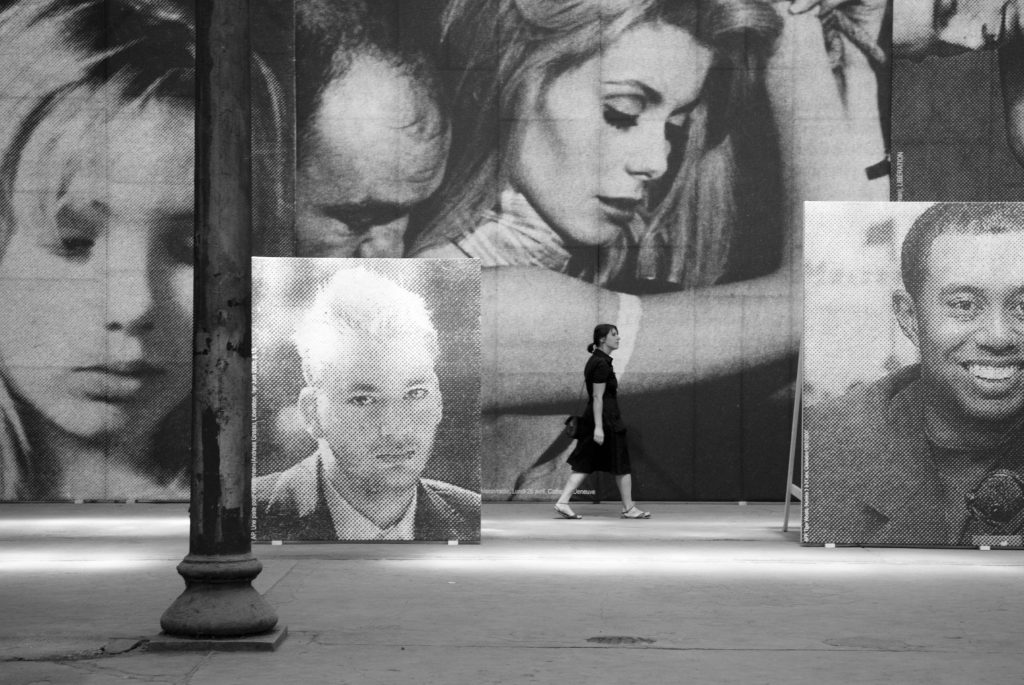

29th August 2019
Part of the Oxford Cultural Collective’s ‘Perspectives on Food in Photography’ initiative.
Jean Roberts, Patron of the Oxford Cultural Collective, discusses her work on developing a new Psychology of Photography, focused on the power of imagery to achieve positive change.
Context
I have been a psychologist and photographer for most of my professional life, specialising in coaching clients through significant periods of transition, in both private and business contexts. I work with individuals and with groups, helping them to realise their untapped potential. My approach is pragmatic, linked in a way to positive psychology, but accepting that life can be tough and that we sometimes need practical guidance and a boost to our confidence. My methods are also somewhat distinctive, often incorporating photographs as a visual stimulus for client conversations. This complements the Oxford Cultural Collective’s collaborative approach to all its projects, which draws on the experience and expertise of Patrons, friends and associates to fuel creative discussion, promote new thinking and create exciting opportunities for personal fulfilment, professional development and social change.
I’ve come to realise that the ubiquitous preoccupation with photographs of food, which finds public expression through social media, lifestyle magazines and cookbooks, presents new and fascinating opportunities for exploring our relationship with food, in all its complex forms. As Susan Bright noted in the preface to her 2017 book Feast for the Eyes, ‘…photographs of food are rarely just about food’.
Using the Oxford Cultural Collective as our platform, we are collecting many ‘perspectives’ on food in photography, which expand and inform our analysis of this popular genre. All over the world it is through photography that we communicate, affirm, confirm, perform, record, display, persuade and deceive. It’s little wonder that we find photographs so engaging and no surprise that they are such powerful triggers for lively discussion. The next stage in this project will be to provide ‘photo-coaching’, using food photography as our resource.
Our partnership with Pink Lady Food Photographer of the Year Award is a constant source of inspiration and it’s a privilege to showcase many of the wonderful photographs of food and drink submitted to their annual competition.

Photo-coaching: process and outcomes
Our definition: Photo-coaching is a term we use at OCC to describe a process for liberating thinking and generating ideas through photography. I run unscripted sessions for individuals or groups in which the words, emotions, thoughts and memories are all drawn from photographs. I provide the photographs and facilitate the resulting discussion to help participants reflect and consider how new perspectives can be used to enhance life and work. In these highly interactive photo-coaching sessions, which last for about three hours, we use the mindset of appreciative inquiry: the belief that self-knowledge and awareness of our own strengths can help us become more resilient and better equipped to manage our lives.
Individual work: Photographs for personal discovery
For individuals going through transitions of all kinds, whether personal or career related, sessions explore their unique view of the world and help them discover their signature strengths. Using a range of photographic images as visual stimuli it is possible for participants to engage with photographs on a very personal level. There’s often something in a photograph that stimulates our memories, or an aspect that moves us emotionally. So photographs help participants explain their lived experiences, a process that can be very challenging when traditional question and answer techniques are used. By the end of their photo-coaching sessions, clients will hopefully recognise that focusing on their strengths, rather than being preoccupied with their perceived weaknesses, can deliver multiple benefits. They often experience a significant growth in confidence and an enhanced sense of self-determination.

Group work: Photographs for collaborative inquiry
My work with groups takes a slightly different form but follows similar principles. The starting point here is to address an important question facing the group, such as: ‘How can we raise the mood in our organisation?’ or ‘What is it that brings out the best in us’? As an occupational psychologist, I ensure that every group reaches conclusions and that they draw strands of their conversation together to form action points.
Participants are invited to acknowledge the role of diversity in creativity. They are introduced to photo-elicitation techniques which, in non-confrontational ways, help them explore how we all see the world differently. They begin to recognise that every photograph holds multiple truths and stories, determined by the social and cultural lenses through which we view them. In the memorable words of Anais Nin: “We don’t see things as they are, we see them as we are.”
Looking at different photographs stimulates natural, free-flowing discussion which, unconstrained by standard scripts, often takes unexpected directions. Adopting a spirit of collaborative inquiry, rather than a problem solving approach (which is more common), encourages participants to share their perceptions and to listen to those of others. This increases curiosity and ensures the accumulation of new knowledge. With attentive and flexible facilitation the level of sharing and mutual understanding increases and the group begins to recognise the power of collective (positive) thinking. Once again there is a welcome shift in focus. Group members realise that time spent together, in conversation, breaks down barriers, fuels energy and creativity and enables success.

Application to food, drink and hospitality sectors
As a member of the OCC team, I am keen to contribute thinking and practice from my professional experience to the hospitality sector. We know that a key question on many minds today is how to continue to inspire teams when resources are tight and the economic outlook is uncertain. This is where innovative tactics, such as the use of photo-coaching, can prove beneficial.
To enquire about using photo-coaching as a means of harnessing individual or group potential contact OCC: occ@oxfordculturalcollective.com